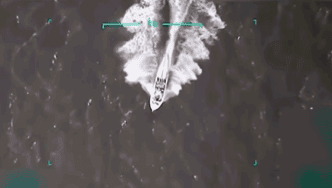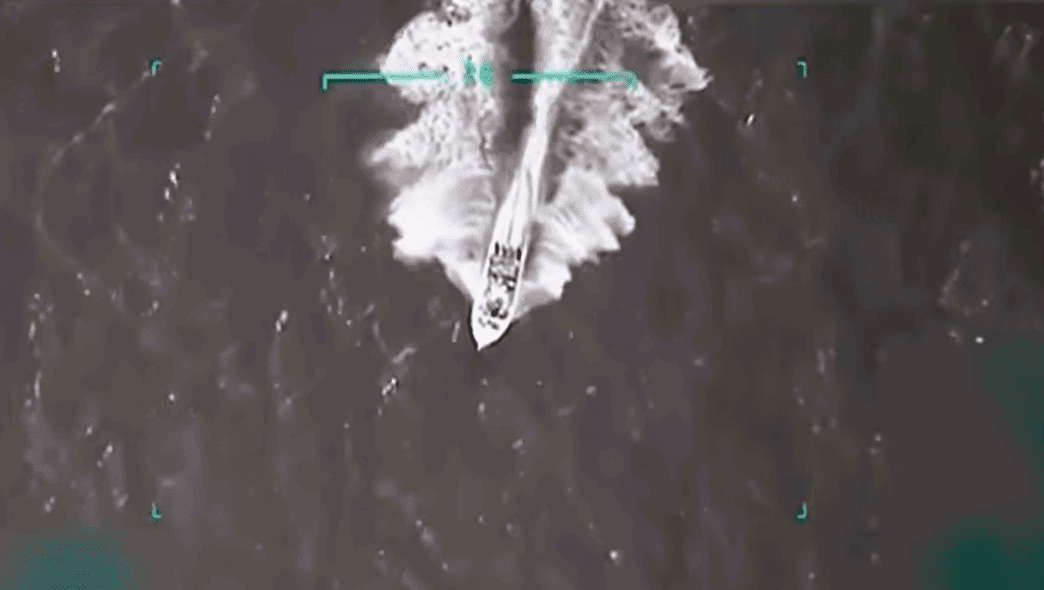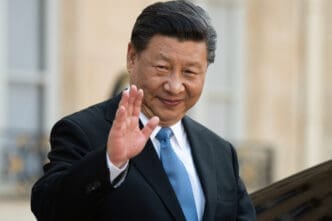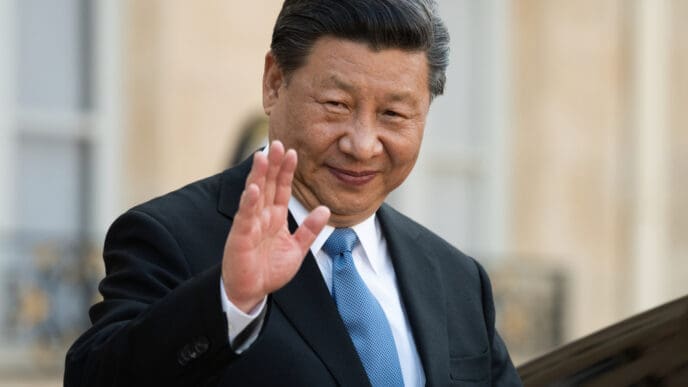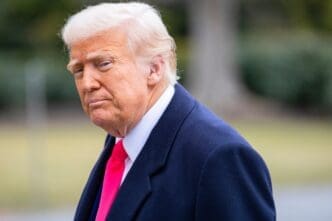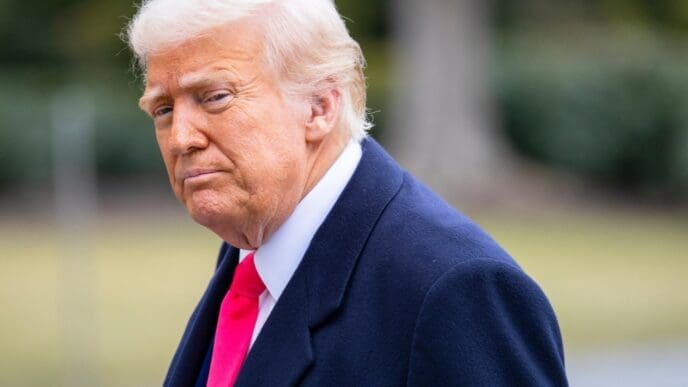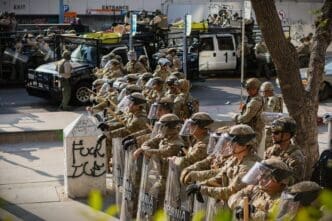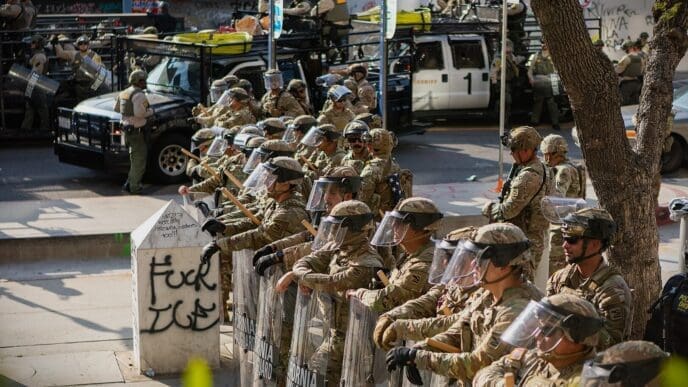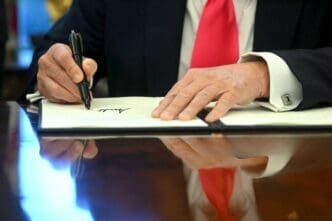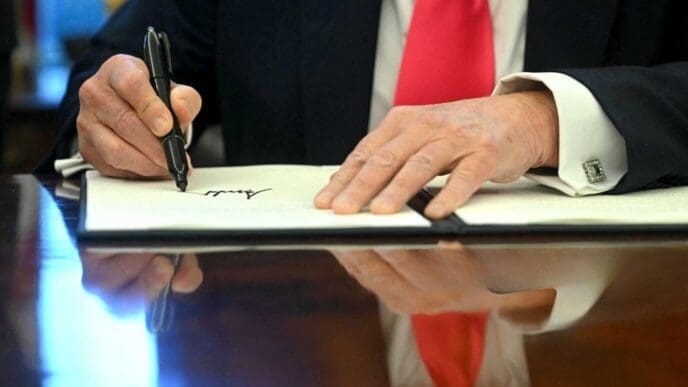Executive Summary
- The U.S. military conducted a deadly strike in the southern Caribbean against an alleged drug boat tied to the Tren de Aragua cartel, resulting in 11 deaths.
- President Trump announced the “kinetic strike” against “positively identified Tren de Aragua Narcoterrorists,” warning against bringing drugs into the U.S. and asserting the cartel operates “under the control of Nicolas Maduro.”
- The strike represents a significant escalation in the Trump administration’s counter-drug efforts, with President Trump and Secretary Rubio affirming the continuation of such military missions against drug cartels.
The Story So Far
- The Trump administration has significantly escalated its counter-drug operations, having previously designated the Venezuelan-originated Tren de Aragua cartel as a Foreign Terrorist Organization earlier this year. This military strike, announced by President Trump, reflects the administration’s stated commitment to aggressively combat drug cartels and “narcoterrorists” in the Western Hemisphere, especially those perceived to be trafficking drugs into the United States from Venezuela.
Why This Matters
- This deadly military strike, announced by President Trump against an alleged drug vessel linked to the Venezuelan-originated Tren de Aragua cartel, marks a significant escalation in the use of U.S. military force against designated “narcoterrorist” organizations in international waters, signaling a more aggressive and sustained posture in the Western Hemisphere that could heighten regional tensions, particularly with Venezuela.
Who Thinks What?
- President Donald Trump and his administration view the military strike as a necessary “kinetic strike” against “positively identified Tren de Aragua Narcoterrorists,” asserting that these groups, operating under Nicolas Maduro’s control, are responsible for drug trafficking into the U.S., and they intend to continue such counter-drug missions.
- Venezuelan leader Nicolas Maduro has criticized the increased U.S. military presence around the Caribbean and Latin America, implying opposition to such actions.
The United States military conducted a deadly strike against an alleged drug boat in international waters, resulting in the deaths of 11 individuals, President Donald Trump announced on Tuesday. The strike, described by Secretary of State Marco Rubio as a “lethal strike” in the “southern Caribbean,” targeted a vessel that reportedly departed from Venezuela and was tied to the Tren de Aragua cartel.
Military Action and Official Statements
President Trump stated on Truth Social that U.S. Military Forces executed a “kinetic strike” against “positively identified Tren de Aragua Narcoterrorists” in the U.S. Southern Command (SOUTHCOM) area of responsibility. He asserted that Tren de Aragua, a designated Foreign Terrorist Organization, operates “under the control of Nicolas Maduro” and is responsible for various crimes across the United States and the Western Hemisphere, including drug and sex trafficking.
In his post, President Trump issued a warning: “Please let this serve as notice to anybody even thinking about bringing drugs into the United States of America. BEWARE!”
The State Department had previously designated Tren de Aragua, which originated in Venezuela, as a foreign terrorist organization and specially designated global terrorists in February.
Context and Regional Implications
Secretary of State Marco Rubio, speaking before a trip to Mexico and Ecuador, confirmed the “counter-drug mission” would continue. He emphasized the administration’s commitment to “wage combat against drug cartels that are flooding American streets and killing Americans,” noting that the route from Venezuela is a “common” one for drug trafficking.
The use of military force against Latin American drug cartels by the Trump administration represents a significant escalation, with potential implications for regional stability. The US has increased its military presence around the Caribbean and Latin America, a move that has drawn criticism from Venezuelan leader Nicolas Maduro.
Legal Authority and Future Operations
When questioned about the legal authority for militarily targeting cartels, Secretary Rubio did not elaborate on White House counsel’s reasoning but stated that “all of those steps were taken in advance.” He reiterated that President Trump has designated these organizations as terrorist entities, asserting that “which is what they are.”
Later on Tuesday, President Trump further commented on the operation, stating that the US military “just over the last few minutes, literally shot out a boat, a drug carrying boat.” He added, “There’s more where that came from,” highlighting the issue of drugs “pouring into” the US from Venezuela. A senior defense official confirmed a “precision strike” against an alleged drug vessel in the southern Caribbean but provided no further operational details.
The recent military strike marks a significant escalation in the Trump administration’s efforts to combat drug trafficking, specifically targeting the Venezuelan-originated Tren de Aragua cartel. With President Trump and Secretary Rubio affirming the continuation of such counter-drug missions, the action signals a more aggressive posture against perceived narcoterrorist threats in the Western Hemisphere.

